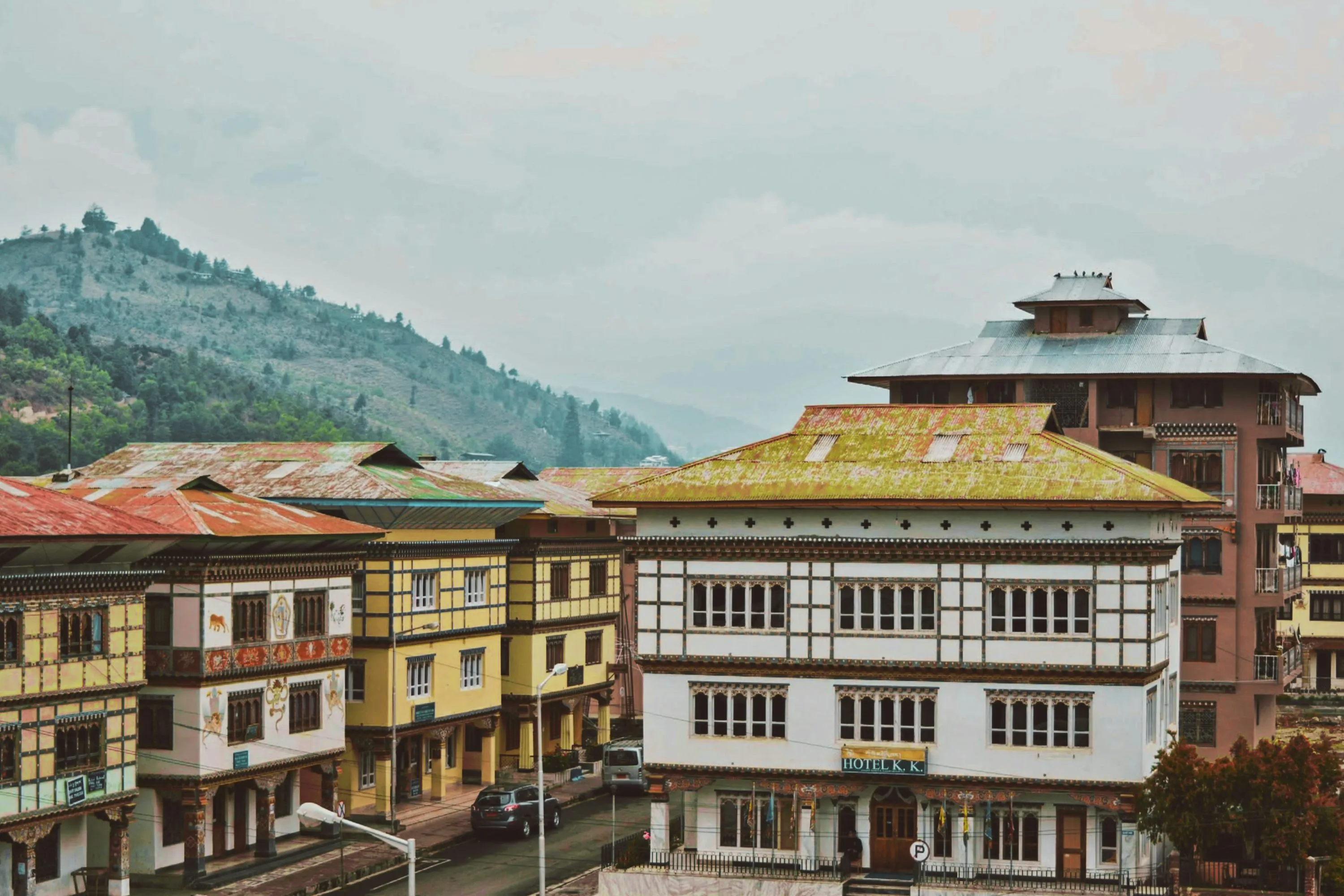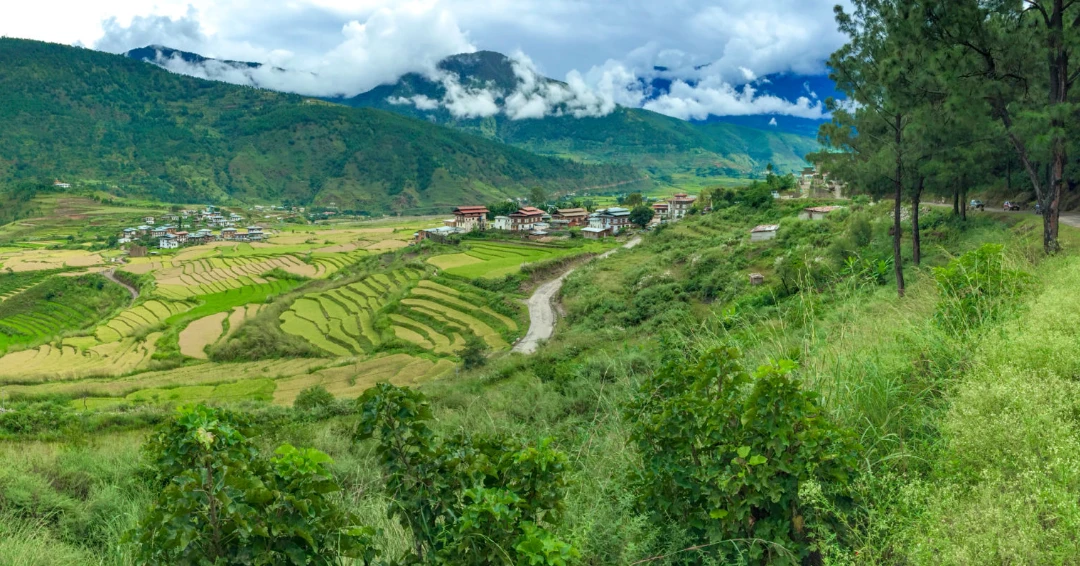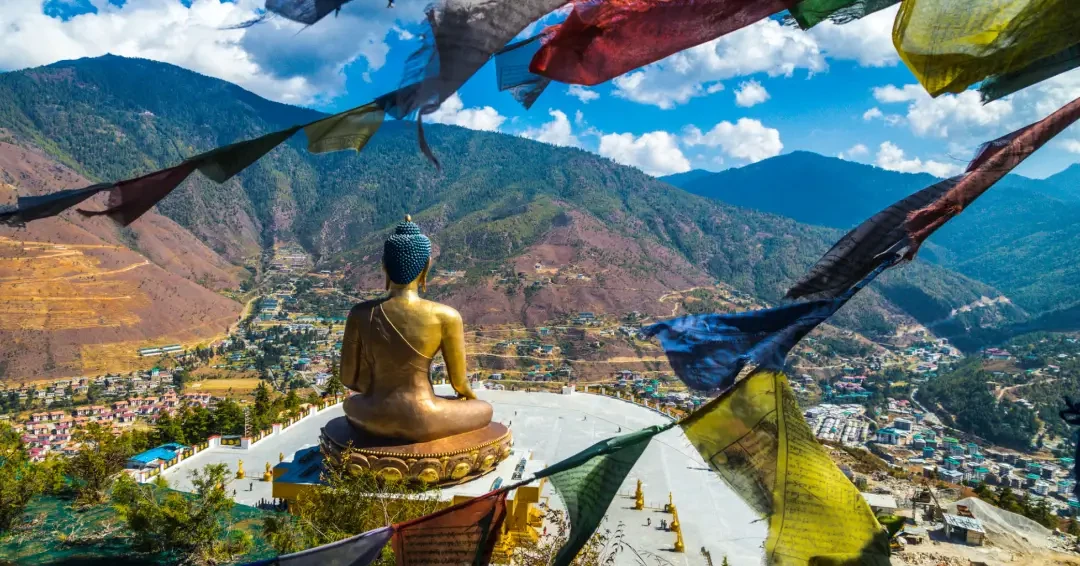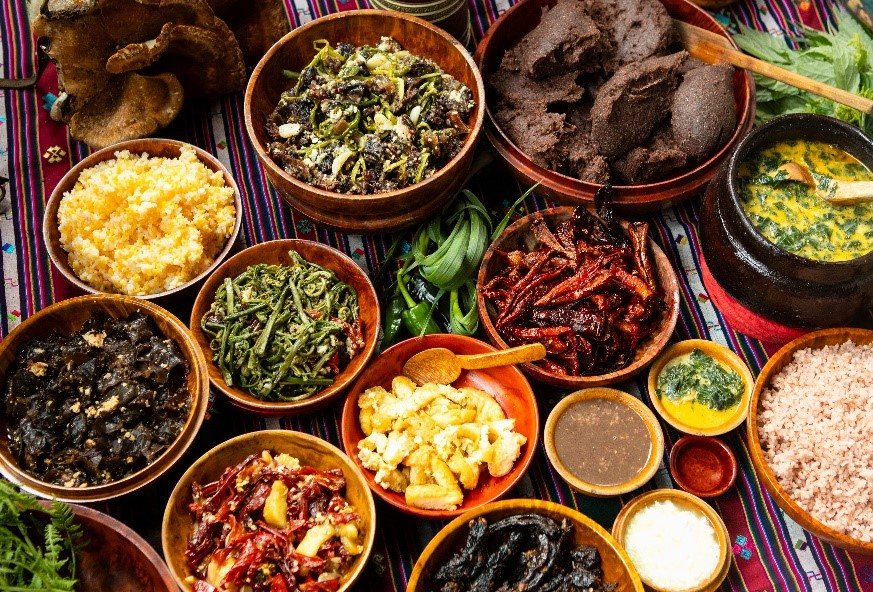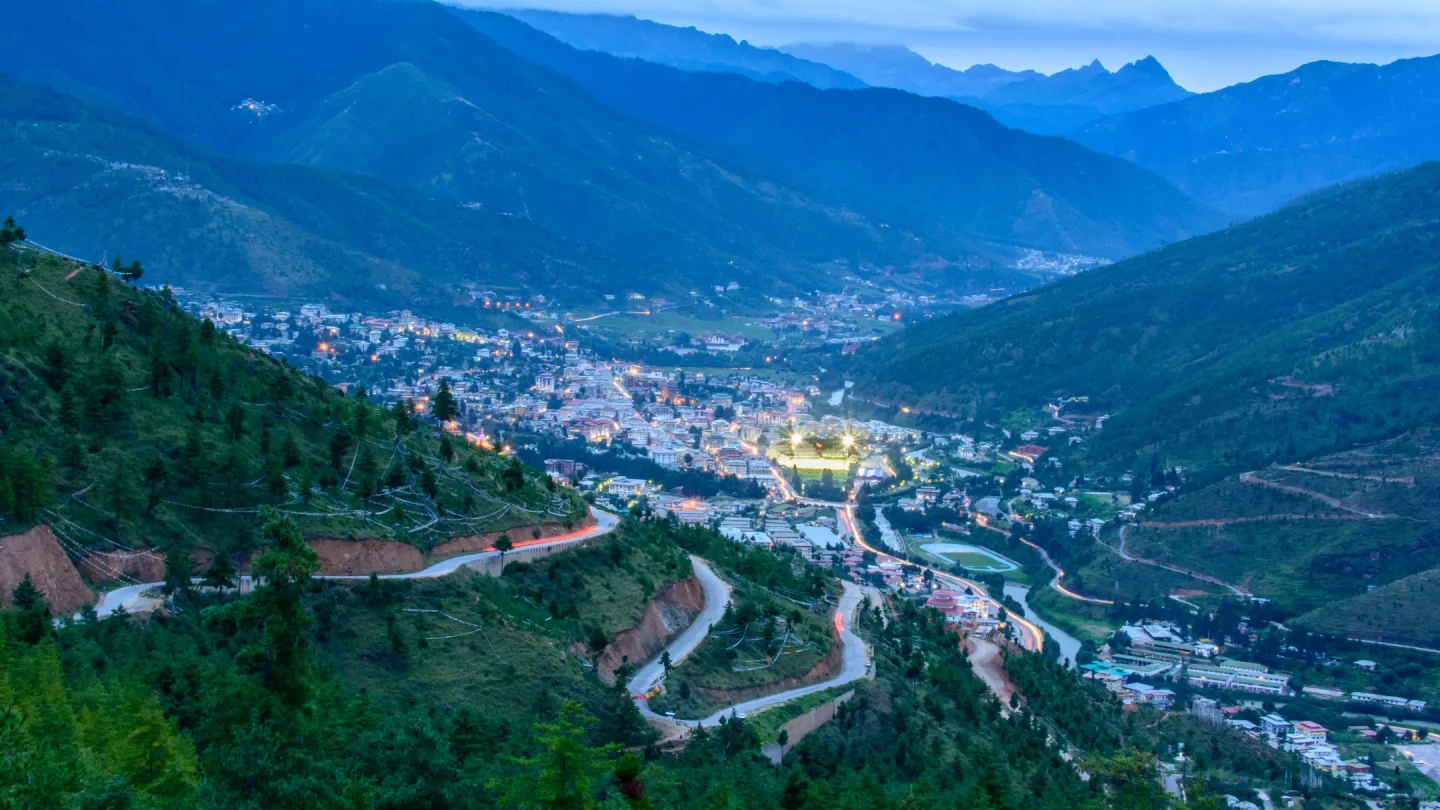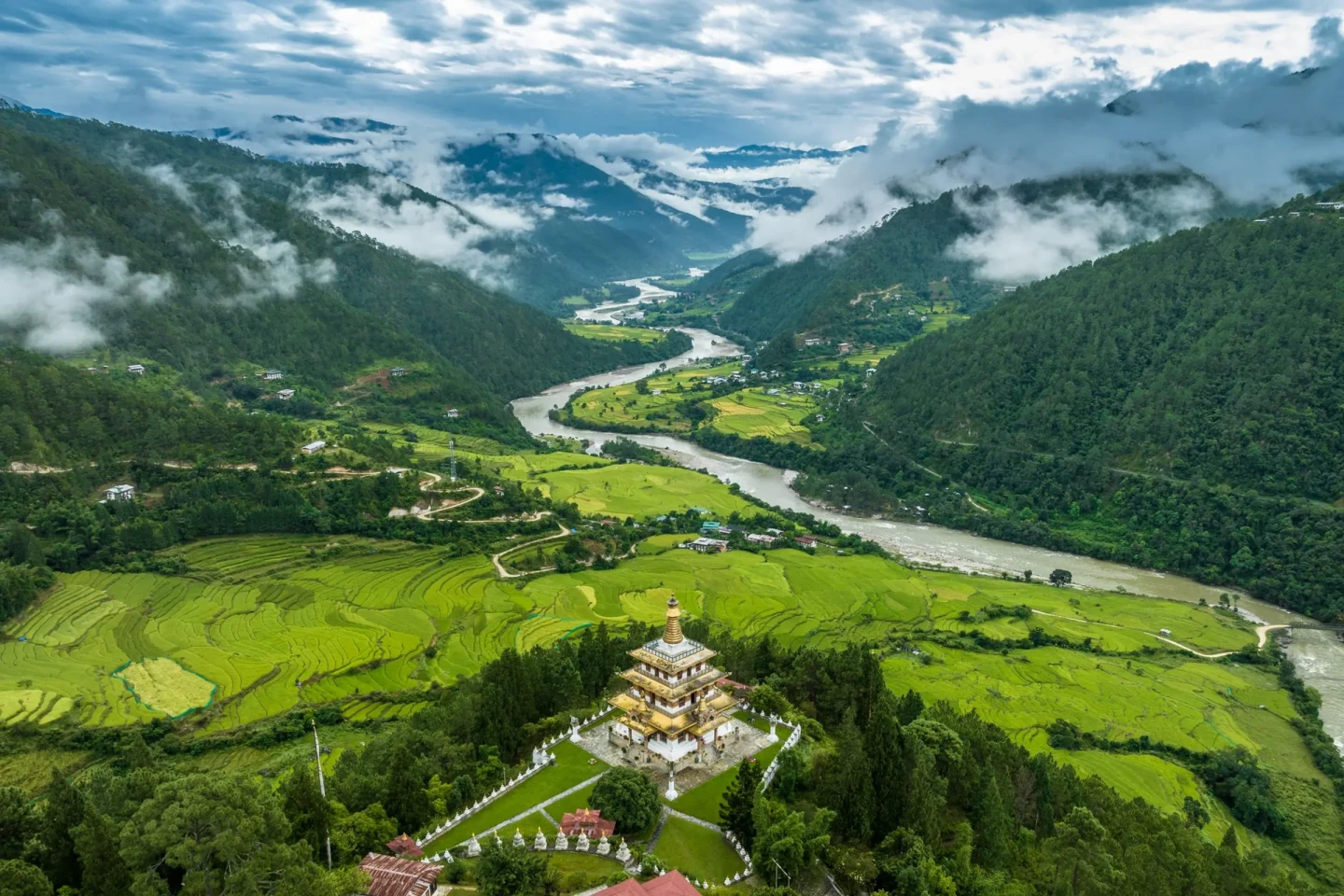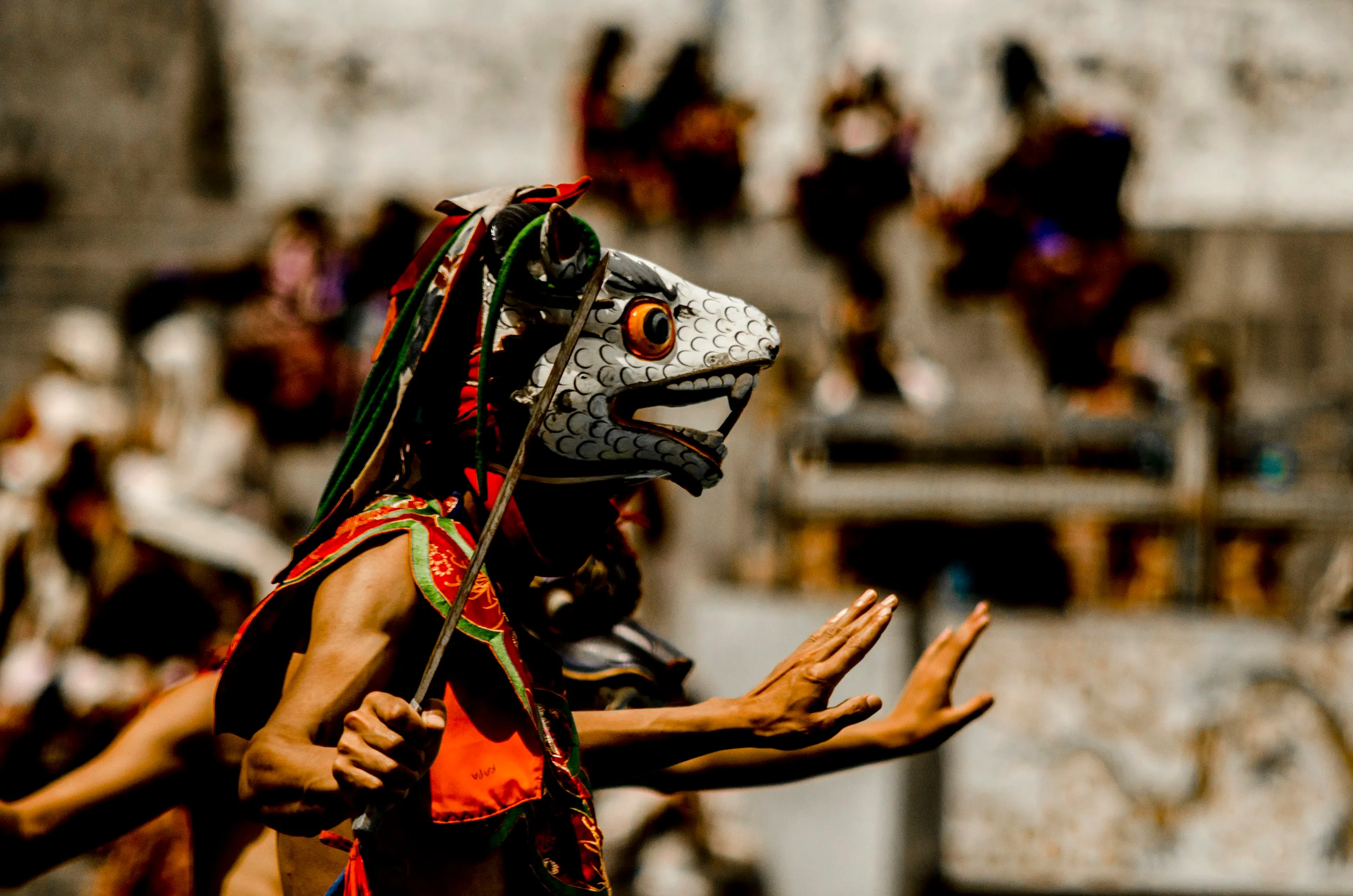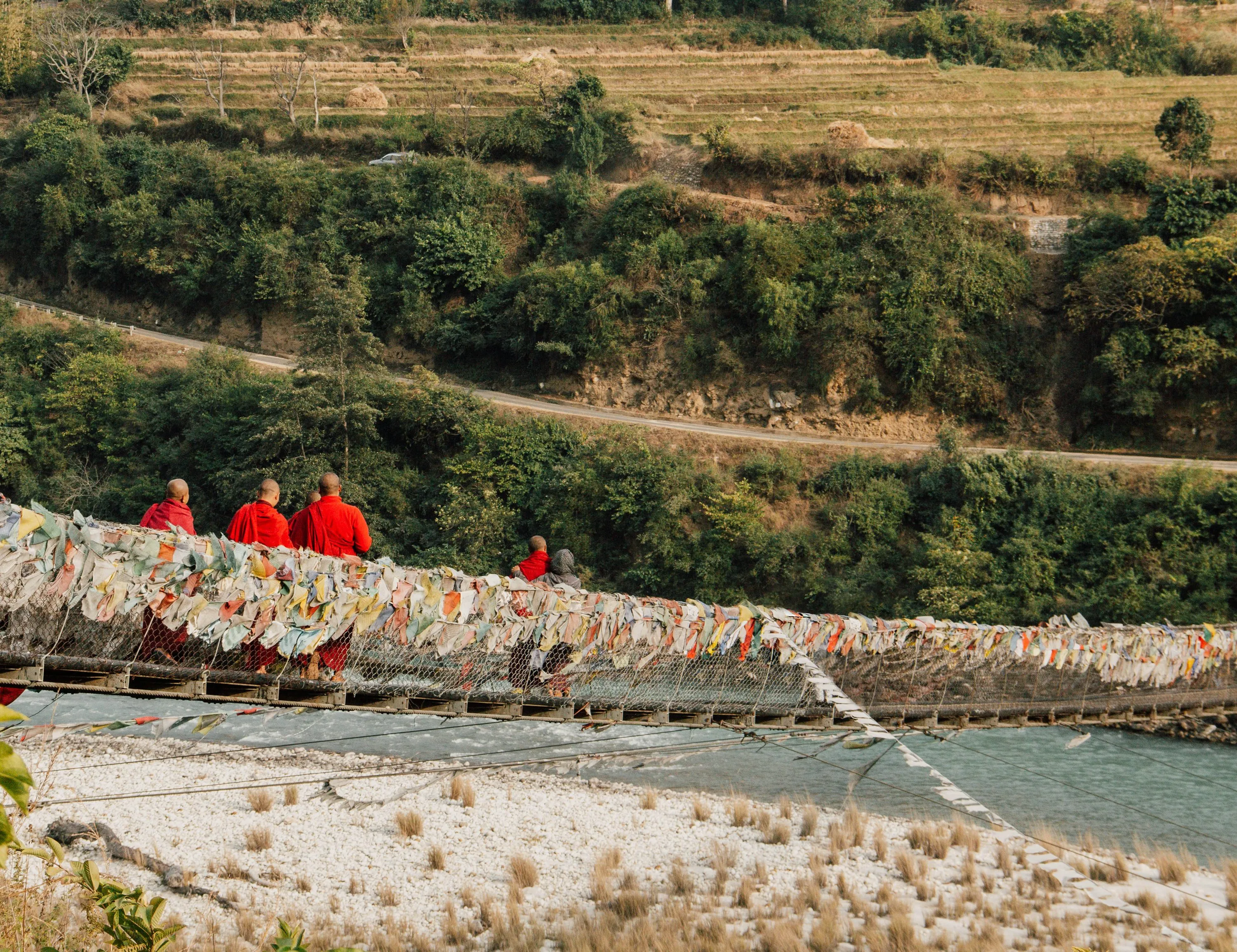Bhutan, nestled in the eastern Himalayas, offers a profound escape into a world where ancient traditions harmonize with pristine natural landscapes, making it an ideal destination for travelers from Bosnia and Herzegovina seeking authenticity and serenity. This landlocked kingdom, often called the "Land of the Thunder Dragon," is renowned for its commitment to preserving cultural heritage and environmental integrity, providing a stark yet refreshing contrast to the bustling, historically layered life in Bosnia and Herzegovina. While diplomatic relations between Bhutan and Bosnia and Herzegovina are not extensively formalized—Bhutan maintains ties with a select group of nations focused on mutual respect and sustainable development, and there is no direct embassy presence—the two countries share subtle parallels that can foster a sense of familiarity for Bosnian visitors. Both nations boast rugged mountainous terrains that shape their identities: Bhutan's soaring peaks echo the Dinaric Alps that dominate Bosnia and Herzegovina's geography, offering similar opportunities for hiking and reflection amid dramatic vistas. Culturally, Bhutan's deep-rooted Buddhist philosophy emphasizes harmony and community, much like the resilient spirit of Bosnians who have preserved diverse ethnic traditions through centuries of Ottoman, Austro-Hungarian, and Yugoslav influences. Historically, Bhutan has remained a peaceful monarchy, avoiding the conflicts that marked Bosnia and Herzegovina's recent past, yet both societies value oral storytelling, folk arts, and a profound connection to nature as pillars of their heritage. For Bosnian and Herzegovinian travelers, Bhutan represents not just a journey across continents but a chance to rediscover the beauty of unhurried living, where the pursuit of happiness transcends material wealth, inviting a realistic yet captivating adventure that balances introspection with awe-inspiring discoveries.
Visa and Entry Requirements
Bhutan's tourism is governed by a controlled policy designed to protect its unique environment and culture, mandating that all foreign visitors, including those from Bosnia and Herzegovina, must book their trips through licensed Bhutanese tour operators. This system ensures sustainable tourism by limiting visitor numbers and channeling revenue toward national development. For Bosnian and Herzegovinian citizens, obtaining a visa involves a straightforward process handled entirely by the chosen tour operator, who submits the application on your behalf to the Tourism Council of Bhutan. Required documents typically include a scanned copy of your passport valid for at least six months from the date of entry, a recent passport-sized photo, and proof of your tour booking, such as an itinerary and payment receipt. The visa is an electronic one, approved within 72 hours once the tour payment is confirmed, and it is emailed to you for presentation upon arrival at Paro International Airport. Importantly, the visa issuance is tied directly to the payment of the tour package, which includes the Sustainable Development Fee (SDF). This fee, currently set at USD 100 per person per night for most international visitors, supports Bhutan's initiatives in education, healthcare, and environmental conservation, effectively increasing the overall cost of travel but ensuring that your visit contributes positively to the kingdom's future. For Bosnian and Herzegovinian travelers, this means budgeting accordingly, as the SDF is non-negotiable and forms a core part of the minimum daily package rate, which also covers accommodations, meals, transportation, and guiding services, making independent travel impossible but guaranteeing a structured and enriching experience.
Travel Routes from Bosnia and Herzegovina to Bhutan
Traveling from Bosnia and Herzegovina to Bhutan requires careful planning due to the absence of direct flights, with most journeys originating from Sarajevo International Airport and involving multiple transits through major hubs like Istanbul, Delhi, Bangkok, or Kathmandu. From Sarajevo, Turkish Airlines offers convenient connections to Istanbul, where you can transfer to flights heading to one of Bhutan's gateway cities; for instance, a route via Istanbul to Delhi takes approximately 10-12 hours, followed by a short flight to Paro. The only airlines authorized to operate into Bhutan are Druk Air (Bhutan's national carrier) and Bhutan Airlines, both of which fly from select international points including Delhi, Bangkok, and Kathmandu, with Paro International Airport serving as the sole entry point for air travelers. Paro Airport, dramatically situated in a deep valley surrounded by high peaks, is one of the world's most challenging airports, limiting operations to daylight hours and visual flight rules, which can lead to delays or cancellations during adverse weather conditions such as fog or strong winds common in the Himalayas. Bosnian and Herzegovinian travelers should book flights well in advance, ideally through their tour operator who can coordinate seamless connections, and expect total travel times of 18-24 hours including layovers. Realistic scheduling involves allowing buffer days for potential disruptions, as monsoon rains from June to August or winter snows can affect flights, emphasizing the need for flexibility in your itinerary to accommodate these Himalayan realities.
Best Time to Visit and Seasonality
Bhutan's climate varies dramatically across its seasons, influenced by its Himalayan location, offering distinct experiences that Bosnian and Herzegovinian travelers should consider when planning their trip to align with personal preferences for weather, activities, and cultural immersion. Spring, from March to May, brings mild temperatures averaging 10-20°C in the valleys, with blooming rhododendrons and clear skies ideal for trekking and sightseeing, though occasional showers can occur; this period coincides with festivals like the Paro Tshechu, where vibrant mask dances and religious ceremonies provide a deep cultural insight. Summer, June to August, sees the monsoon season with heavy rainfall, warmer days up to 25°C, and lush greenery, but slippery roads and leeches in lower areas make it less favorable for outdoor pursuits, though it's a quieter time for those seeking solitude amid nature. Autumn, September to November, is widely regarded as the prime visiting window, with crisp air, temperatures around 15-22°C, and minimal rain, perfect for festivals such as the Thimphu Tshechu and Jambay Lhakhang Drup, drawing crowds to witness sacred performances that honor Bhutan's Buddhist heritage. Winter, December to February, offers cold but dry conditions with temperatures dropping to 0-10°C and possible snowfall in higher elevations, suiting travelers interested in birdwatching or serene monastery visits without the summer humidity. For Bosnian and Herzegovinian tourists accustomed to continental climates with distinct seasons, autumn or spring are recommended for optimal comfort, fewer crowds compared to peak festival times, and a balance of cultural events and accessible trekking, ensuring a trip that maximizes enjoyment while minimizing weather-related disruptions.
Money, Costs, and Payment Methods
Bhutan's official currency is the Ngultrum (BTN), pegged at par with the Indian Rupee, which is also widely accepted, providing a stable financial environment for Bosnian and Herzegovinian travelers who might find similarities to handling multiple currencies in their home region. Exchanging money is straightforward at banks, authorized hotels, or the airport in Paro, where USD is the most favorable foreign currency to bring due to its easy convertibility; however, ATMs are available in major towns like Thimphu and Paro, accepting international Visa and Mastercard cards, though reliability can vary in remote areas, so carrying sufficient cash is advisable. Credit cards are accepted at larger hotels and some shops in urban centers, but smaller establishments and rural vendors prefer cash, making it essential to plan withdrawals accordingly. Tour prices, mandated by the government, typically include accommodations in 3-star or equivalent hotels, all meals, internal transportation, a licensed guide, and entrance fees, with the minimum daily rate incorporating the SDF, resulting in costs starting around USD 250-300 per person per day for groups. Extra expenses for Bosnian and Herzegovinian visitors often encompass alcoholic beverages, souvenirs, tips for guides and drivers (around USD 10-15 per day per person), and personal items like laundry or optional activities, so budgeting an additional USD 50-100 daily ensures comfort without surprises in this cash-oriented society.
Health, Safety, and Travel Insurance
Health considerations in Bhutan revolve around its high-altitude terrain, where elevations often exceed 2,500 meters, posing risks of altitude sickness with symptoms like headaches, nausea, and fatigue that can affect even fit travelers from lower-lying Bosnia and Herzegovina. Medical facilities are basic outside major towns, with the main hospital in Thimphu offering adequate care, but specialized treatment may require evacuation to India or Thailand; thus, recommended vaccinations include hepatitis A and B, typhoid, and rabies, alongside routine shots, while malaria is rare but mosquito repellents are useful in lower valleys. Bhutan maintains a remarkably low crime rate, with its peaceful society and strong community values ensuring safety for visitors, though minor risks such as encounters with stray dogs—potentially carrying rabies—or navigating uneven paths in monasteries warrant caution. Travel insurance is indispensable, particularly policies covering emergency medical evacuation, trip cancellations, and high-altitude activities, as standard Bosnian and Herzegovinian health plans may not extend here; opting for comprehensive coverage provides peace of mind, allowing you to focus on the kingdom's spiritual and natural wonders without undue worry.
Cultural Etiquette and Social Expectations
Bhutanese society is deeply rooted in Buddhist principles of respect, humility, and harmony, requiring Bosnian and Herzegovinian travelers to adopt behaviors that honor these values, especially in sacred spaces like monasteries and dzongs where removing hats, shoes, and speaking softly are mandatory. Modesty in dress is paramount—covering shoulders and knees for both men and women when visiting religious sites, avoiding revealing clothing that might clash with local norms, much like respecting mosque etiquette in Bosnia and Herzegovina's Muslim communities. Patience and humility are cherished; rushing or raising voices is frowned upon, encouraging visitors to embrace the slower pace and greet locals with a slight bow and "Kuzuzangpo la" (hello), using the right hand or both for giving and receiving items as a sign of respect. Religious etiquette extends to not pointing at statues or people, walking clockwise around stupas, and refraining from touching monks' robes or sacred artifacts, fostering a mindful presence that aligns with Bhutan's emphasis on inner peace. Bosnian and Herzegovinian cultural traits like warm hospitality and storytelling can blend seamlessly, but adjustments such as toning down directness in favor of polite indirectness will enhance interactions, ensuring your visit contributes positively to the kingdom's social fabric.
Connectivity, SIM Cards, Internet Access
Connectivity in Bhutan has improved significantly, with Wi-Fi available in most hotels and cafes in urban areas like Thimphu and Paro, though speeds can be inconsistent in remote valleys, suiting Bosnian and Herzegovinian travelers used to reliable European networks but requiring patience for uploads or streaming. Local SIM cards from providers like B-Mobile (Bhutan Telecom) and TashiCell offer affordable data plans, purchasable at the airport or town outlets with your passport and visa; B-Mobile provides wider coverage, ideal for treks, while TashiCell excels in urban zones, with prepaid options starting at around BTN 200 for basic voice and data. Activation is quick, and 4G is available in many areas, but expect slower 3G or edge in highlands. Bosnian and Herzegovinian apps and services generally work without restrictions, though occasional censorship on sensitive content might occur; using a VPN can ensure unrestricted access and privacy, particularly for banking or social media, making it a practical addition to your digital toolkit for staying connected amid Bhutan's serene landscapes.
Language and Communication
Dzongkha is Bhutan's national language, but English is the medium of instruction in schools and widely spoken in tourism sectors, easing communication for Bosnian and Herzegovinian travelers whose English proficiency can bridge most interactions with guides, hotel staff, and urban locals. Specialized guides fluent in Bosnian, Croatian, or Serbian are not commonly available, as Bhutanese tour guides primarily train in English, with some offering German, French, or Japanese; however, English-speaking guides are standard and highly knowledgeable, often certified by the Tourism Council. For those with limited English, strategies include using translation apps like Google Translate with Dzongkha support, learning basic phrases such as "thank you" (Kadrinche la) or "hello," and relying on your tour operator to pair you with a patient guide who can use visual aids or simple explanations. Non-verbal communication, like smiles and gestures, transcends barriers in this welcoming society, ensuring that even without shared languages, the warmth of Bhutanese hospitality fosters meaningful exchanges.
Packing and Preparation Advice
Packing for Bhutan demands consideration of its variable Himalayan climates, where days can shift from warm valleys to chilly evenings, advising Bosnian and Herzegovinian travelers to layer clothing with breathable base layers, fleece jackets, and waterproof windbreakers for rain or wind. Comfortable walking shoes with good grip are essential for uneven paths and treks, alongside lighter sandals for indoor monastery visits; pack modest attire like long pants and shirts to respect cultural sites, and include a warm hat, gloves, and scarf for higher altitudes where temperatures drop below freezing in winter. Personal items should encompass sunscreen, lip balm, and moisturizer to combat dry air and UV exposure, plus insect repellent for lower regions and a reusable water bottle for hydration. Medications are crucial—bring prescriptions for altitude sickness like Diamox, along with remedies for stomach issues, headaches, and allergies, as pharmacies are limited outside towns; don't forget a first-aid kit with bandages and antiseptics. Power adapters for Type D, F, or G sockets (220-240V) are needed, and a portable charger counters occasional outages; other practicalities include binoculars for birdwatching, a journal for reflections, and eco-friendly toiletries to align with Bhutan's environmental ethos, preparing you thoroughly for the kingdom's demanding yet rewarding conditions.
Bhutan’s Unique Tourism Philosophy
Bhutan's tourism philosophy is intrinsically linked to its guiding principle of Gross National Happiness (GNH), a holistic framework introduced by the Fourth King in the 1970s that prioritizes the well-being of its citizens over economic growth alone, shaping policies that favor quality over quantity in visitor experiences. GNH encompasses four pillars—good governance, sustainable socioeconomic development, cultural preservation, and environmental conservation—ensuring that tourism contributes to these without overwhelming the kingdom's resources. This cautious approach limits modernization, such as restricting large-scale infrastructure or mass tourism, to maintain Bhutan's pristine environment and authentic culture, where over 70% of the land remains forested and carbon-negative status is upheld. For Bosnian and Herzegovinian travelers, understanding this means appreciating why Bhutan eschews overcrowded sites in favor of intimate, meaningful encounters, with the SDF funding community projects that preserve traditions like archery and weaving. By preferring discerning visitors who value depth over superficiality, Bhutan safeguards its identity, inviting Bosnians to engage thoughtfully with a nation where happiness is measured not by GDP but by collective harmony and sustainability.
Mindset and Expectations for Visitors
Adjusting your mindset for Bhutan involves embracing a slower pace of life that contrasts with the dynamic rhythm of Bosnia and Herzegovina, where efficiency and urban conveniences might be the norm, but in Bhutan, the emphasis lies on mindfulness and connection rather than haste. Expect limited infrastructure, with winding mountain roads causing longer travel times and small, family-run hotels offering cozy but basic amenities without the luxury of high-end chains. The absence of vibrant nightlife, gourmet shopping malls, or fast-paced entertainment underscores Bhutan's focus on nature, culture, and spirituality—think serene hikes through rhododendron forests, contemplative monastery visits, and communal festivals that foster inner peace. Bosnian and Herzegovinian travelers should anticipate simple pleasures like sharing butter tea with locals over profound conversations, rather than seeking material indulgences, allowing the kingdom's unspoiled beauty to reveal itself gradually and reward those who approach with openness and patience.
Food and Dining Culture
Bhutanese cuisine reflects the kingdom's agrarian roots and Himalayan influences, characterized by bold, spicy flavors from abundant chilies, rich cheese-based dishes, and simple, hearty ingredients that emphasize freshness and communal sharing. Staples like ema datshi—a fiery stew of chilies and cheese—dominate meals, often accompanied by red rice, buckwheat noodles, or pork and beef curries infused with garlic, ginger, and local herbs, creating a palate that might surprise Bosnian and Herzegovinian tastes accustomed to milder Balkan fare but offers a warming comfort in cooler altitudes. Dining is a social affair, with food served family-style in wooden bowls, encouraging seconds as a sign of hospitality; alcohol, such as ara (rice wine) or locally brewed beer, is enjoyed moderately, while suja (butter tea) and herbal infusions play central roles in daily rituals, symbolizing nourishment for body and spirit. Attitudes toward eating prioritize gratitude and balance, with vegetarian options plentiful due to Buddhist principles, allowing visitors to immerse in Bhutan's generous hosting traditions that turn every meal into a cultural exchange.
Festivals, Religion, and Sacred Places
Religion permeates every aspect of Bhutanese life, with Vajrayana Buddhism guiding daily practices and festivals that serve as vibrant expressions of faith, community, and heritage. Tshechus, annual religious festivals held in dzongs and monasteries, honor Guru Rinpoche through masked dances, music, and rituals that purify sins and bestow blessings, drawing locals in colorful attire for days of celebration; visitors can expect immersive experiences like the Paro Tshechu's dramatic performances, but must adhere to rules such as dressing modestly, remaining silent during ceremonies, and not using flash photography. Sacred places like Taktsang Monastery (Tiger's Nest) or Punakha Dzong embody spiritual sanctity, requiring clockwise circumambulation and respectful demeanor to honor their role as pilgrimage sites. These elements deepen understanding of Bhutanese culture, where religion fosters unity and moral guidance, offering Bosnian and Herzegovinian travelers profound insights into a worldview centered on compassion and enlightenment.
Hidden Challenges and Practical Inconveniences
Traveling in Bhutan presents subtle challenges that stem from its commitment to preserving natural and cultural integrity, such as slow service in restaurants due to freshly prepared meals or unexpected itinerary adjustments from weather-impacted roads, which Bosnian and Herzegovinian visitors might find reminiscent of rural Balkan unpredictability but framed here as opportunities for patience and adaptability. Power outages occur occasionally in remote areas, and road conditions—winding and prone to landslides during monsoons—can extend travel times, yet these are integral to experiencing Bhutan's authentic charm, where such inconveniences encourage deeper engagement with the surroundings rather than rushed sightseeing. Embracing these as part of the journey transforms potential frustrations into memorable anecdotes, highlighting the kingdom's unpolished allure that rewards those who approach with flexibility and an open heart.
Shopping and Souvenirs
Shopping in Bhutan centers on artisanal crafts that reflect the kingdom's rich heritage, with markets in Thimphu and Paro offering handwoven textiles like kira and gho fabrics, intricate wooden masks, prayer wheels, incense, and thangka paintings, all crafted by local artisans using traditional techniques. Unlike bustling Balkan bazaars, Bhutan lacks duty-free airports or luxury malls, focusing instead on authentic, sustainable items that support communities; bargaining is minimal and not customary in government-run stores or cooperatives, where fixed prices ensure fair trade, though polite negotiation might occur in smaller stalls. To verify authenticity, seek certificates for valuable pieces and buy from reputable outlets to avoid imports, allowing Bosnian and Herzegovinian travelers to bring home meaningful souvenirs that embody Bhutan's artistic soul.
Altitude Awareness and Physical Preparedness
Altitude in Bhutan varies from 200 meters in southern plains to over 7,000 meters in the north, affecting travelers differently with potential symptoms of acute mountain sickness including dizziness, shortness of breath, and insomnia, particularly during ascents to sites like Dochula Pass at 3,100 meters. Precautions involve gradual acclimatization—spending initial days in lower Paro or Thimphu before higher treks—staying hydrated with at least three liters of water daily, avoiding alcohol and heavy meals, and monitoring for severe signs like confusion that necessitate descent. Physical preparation for Bosnian and Herzegovinian visitors includes pre-trip cardio exercises like hiking or cycling to build stamina, consulting doctors for medications like acetazolamide, and adjusting activities to include rest days, ensuring a safe exploration of Bhutan's elevated wonders.
Security, Safety, and Emergency Information
Bhutan stands out as one of the safest destinations globally, with negligible violent crime and a society built on trust and Buddhist ethics, reassuring Bosnian and Herzegovinian travelers navigating a post-conflict homeland. Petty theft is rare, but securing valuables in rural areas is prudent; emergency contacts include police at 113, medical services at 112, and fire at 110, with tour guides facilitating quick responses. For consular support, Bosnia and Herzegovina lacks a direct embassy in Bhutan, so assistance comes via the embassy in New Delhi, India, reachable at +91-11-2611-1051; respecting local laws like bans on tobacco sales or wildlife poaching is essential. This secure environment allows focus on enjoyment, bolstered by comprehensive insurance and operator support.
Photography and Drones
Photography in Bhutan is encouraged for capturing its stunning vistas, but rules prohibit it inside temples, monasteries, and government buildings to preserve sanctity, requiring permission for interiors and avoiding flash near artifacts. When photographing locals, always seek consent with a smile, respecting privacy especially during rituals; drones demand a permit from the Bhutan Civil Aviation Authority, applied via your tour operator, with restrictions on altitude (under 90 meters), no-fly zones over sacred sites, and declaration upon entry. These guidelines ensure respectful documentation that honors Bhutan's cultural sensitivity.
What Bhutan Does Not Have
Bhutan consciously avoids elements of modern globalization that could erode its unique identity, such as skyscrapers that would mar its mountainous skyline, fast-food chains like McDonald's or KFC that contradict its emphasis on organic, home-cooked meals, casinos that clash with Buddhist values of moderation, or expansive shopping centers promoting consumerism over contentment. This deliberate absence enhances Bhutan's charm, offering Bosnian and Herzegovinian travelers a sanctuary of simplicity where the focus shifts to spiritual and natural fulfillment rather than commercial distractions.
Important Questions to Ask Before Booking a Tour
Before confirming your Bhutan tour, inquire about the guide's qualifications and experience, as a knowledgeable, English-speaking guide certified by the Tourism Council can profoundly enhance your understanding of local customs and history, ensuring they align with your interests in culture or nature. Ask about itinerary flexibility, such as options to adjust for weather or personal energy levels, and details on accommodations, including whether they are comfortable 3-star properties with private facilities and how they cater to dietary preferences like vegetarian meals or allergies common among Bosnian and Herzegovinian travelers. Probe into emergency protocols, including access to medical care, evacuation plans for altitude issues, and how the operator handles disruptions like flight delays, providing reassurance in this remote destination. Question SIM card arrangements, as your operator might assist in purchasing a local one upon arrival for better connectivity, and clarify language support if English is a concern, perhaps requesting a guide with multilingual skills or translation aids. Finally, discuss tipping customs—typically USD 10-15 daily for guides and drivers—and confirm insurance requirements, ensuring the package includes or recommends coverage for cancellations and health, allowing you to book with confidence in a tailored, secure experience.
Conclusion
In reflection, Bhutan remains a rare and special destination for Bosnian and Herzegovinian travelers, offering cultural depth through its Buddhist traditions, natural beauty in its untouched Himalayas, and spiritual peace that invites introspection away from the fast-paced, commercialized world. This kingdom, with its Gross National Happiness ethos, provides an antidote to modern haste, encouraging visitors to savor moments of genuine connection and serenity that linger long after the journey ends.




